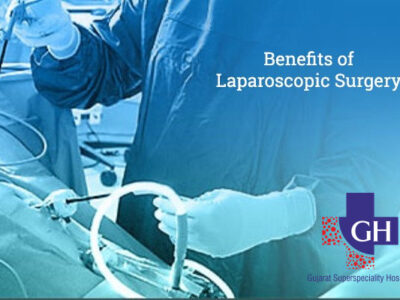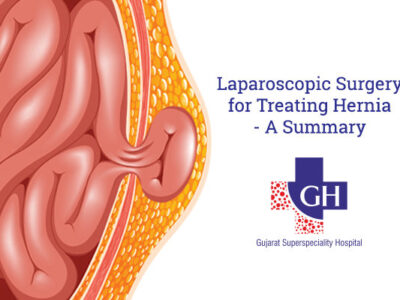Laparoscopic surgery or keyhole surgery is generally known as a minimally invasive surgery technique that is used to access the inside of abdomen and pelvis for examination without the need for large incisions.
With the use of a laparoscope the surgeon is able to avoid the large incisions. It has a small tube with a camera and light source that records and communicates inside images of the pelvis and abdomen onto a television screen. Today there are options of no incision required at all and Gujarat Super Speciality Hospital is offering such opportunities with provisions of the best state-of-the-art equipment.
Why is it performed?
It is normally performed when non-invasive methods like ultrasound, CT scan or MRI scan are unable to diagnose the pain and also when the above do not provide required amount of insight or information needed for diagnosis. Biopsy or sample of tissue may also be taken from specified organ through Laparoscopy.
They are recommended for examination of-
- Gallbladder
- Pancreas
- Liver
- Appendix
- Small and large intestines
- Stomach
- Reproductive or pelvic organs
- Spleen
Laparoscopic surgery helps the doctors in detection of fluid in abdomen, existence of tumor or mass, liver diseases and whether certain treatments have been effective.
Why is it preferred?
It is highly advantageous compared to traditional open surgery as it has quicker recovery period with lesser hospital stay, lesser pain and bleeding post operation and reduced scaring.
How is it performed?
It is performed with firstly administration of anaesthesia. The surgeon usually makes required number of small incisions (.5-1cm in size) which are called ‘ports’ and they allow the doctor to insert the laparoscope, small surgical tools and tube for pumping carbon dioxide gas into abdomen. The images from laparoscope are transmitted to video monitors outside. It is made easy for the surgeon to see around and operate.
On completion of procedure the gas is let out from abdomen and the incisions are closed through stitching and then dressed.
There are various types of laparoscopic surgeries in relation to the specific disease such as
- Laparoscopic Radical Nephrectomy for kidney cancer
- Laparoscopic simple Nephrectomy for non-functioning kidney
- Laparoscopic radical prostatectomy for CA Prostate
- Laparoscopic ureteric re-implantation
- Laparoscopic cholecystectomy for hall stones
- Laparoscopic partial Nephrectomy for Small Renal Mass
- Laparoscopic appendectomy for appendix surgery
- Laparoscopic hysterectomy for uterus surgery
- Laparoscopic neurosurgeries
And all these are being offered by Gujarat Super Speciality at their facilities.

